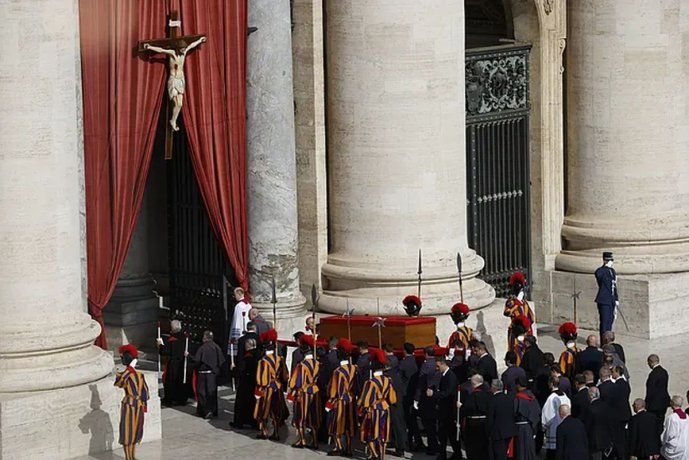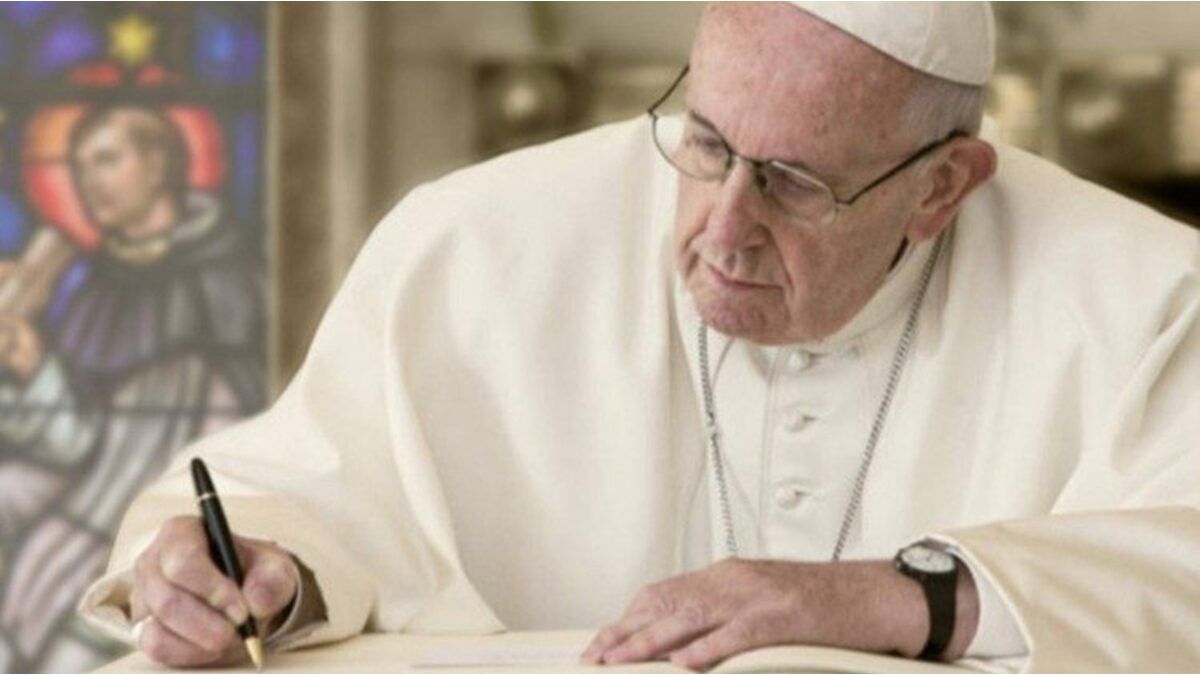Mundojorge Mario Bergoglio – better known as Pope Francis– He arrived at the throne of San Pedro direct from “the end of the world”, as described by the night of Asunción on March 13, 2013. For just over 12 years, the Argentine was responsible for directing a Catholic Church that was in the middle of the crisis for the faithful. Thus, part of his world’s vision legacy was forever reflected in the four encyclicals he wrote during his papacy.
In detail, an encyclical is a letter from the Pope to the bishops and faithful of the world who talk about particular matters of the Church, of the Catholic doctrine or of different problems of today. In total, Francisco wrote four of these texts during his term; Lumen Fidei (2013); Laudato yes’ (2015); Fratelli Tutti (2020) and Dilexit Nos (2024).
While the signing of Pope Francis had, the encyclical was written, to a large extent by the predecessor of Bergoglio, Pope Benedict XVI Who resigned to his position in February 2013. Thus, Lumen Fidei Versa, in broad strokes, about faith.
In the text, the Pope remembers that faith It is not a chain hanging around the neck or an automatic prayer It is an act that is practiced constantly. Faith – Francisco explained – does not oppose reason, but accompanies it and complete. A vision that sought to fight with times of falling faithful and greater skepticisms made most religions.
Pope Francis.webp
The first encyclical of Pope Francis saw the light just over 3 months after assuming his role at the head of the Catholic Church.
The encyclical also raises the idea of a close and personal God, not far and strange, one of Francisco’s many desires during his papacy: to get a church – and a faith – close to his faithful.
What Laudato Si ‘, the best known encyclical of Pope Francis
Perhaps the best known text of Pope Franciso was Laudate yes’its second encyclical signed on May 24, 2015. It focuses, promptly, In the need to take care of the planet, “the common house” as the Pope baptized.
“Thousands of plant and animal species disappear every year. For our cause, thousands of species will no longer give glory to God with their existence nor can they communicate their own message. We have no right, ”Francisco said at the beginning of his encyclical.
Among other problems, the text focuses on the production of “Hundreds of millions of tons of waste per year”, “Global warming” and “slowness” with which politics and the company react to current challenges.
“What kind of world do we want to leave us? What is at stake is our own dignity. We are the first interested in leaving a habitable planet for humanity that will happen to us,” the Pope asked in the fourth chapter of the 192 pages text.
Laudato Si ‘is considered an entire environmental manifesto by the representative of the Catholic Church and is a text that, almost 10 years after its publication, maintains its validity.
What is Fratelli Tutti, the third encyclical of Pope Francis
In the third of his letters, the Argentine overturned another of his great concerns: the fraternity among all the inhabitants of this world. There, Pope Francis defended this idea of coexistence as the only exit to contemporary conflicts In an era that, finally, saw a rebirth of different armed conflicts on the planetsuch as the war between Ukraine and Russia or the conflict in Gaza Strip, on which the Argentine repeatedly expressed himself.
“We are more alone than ever in this massive world that makes individual interests prevail and weakens the community dimension of existence. There are rather markets, where people fulfill roles of consumers or spectators. The advance of this globalism normally favors the identity of the strongest that protect themselves, but seeks to liquefy the identities of the weakest and most poor regions, making them more vulnerable and dependent. In this way, the policy becomes increasingly fragile in front of the transnational economic powers that apply the ‘divide and reign’ “, analyzed the Jesuit.
The text saw the light on October 3, 2023 and sought to spread the idea of a world more equitable and supportive, where the ideal of social justice prevailswho repeatedly adhered Francisco. “I cannot reduce my life to the relationship with a small group, not even my own family, because it is impossible to understand me without a broader fabric of relationships: not only the current one but also the one that precedes me and was configuring me throughout my life,” he said.
Finally, at the close of the letter, the Argentine reinforced his idea of a more receptive church and sentenced: “The Church is a house with open doors, because she is a mother.”
What Dilexit Nos speaks, the last encyclical of Pope Francis
The last of the encyclical Francisco wrote about his papacy baptized as Dilexit (he loved us). The letter was published on October 24, 2024 and focuses mainly on devotion to Sacred Heart of Jesus and divine love.
“We need to recover the importance of the heart in a consumerist world”said the Argentine. Throughout the text, Jesus seeks to revindicate as a symbol of compassion and spiritual healing of a disturbed world, today, by Wars, inequalities, and consumerism and runaway technologies.
Pope Francis Transfer Body.jpg

Faith in Jesus, Francisco’s last text.
Gentileness the world
“Today everything is bought and paid, and it seems that the sense of dignity depends on things that are achieved with the power of money. We only need to accumulate, consume and distract ourselves, prisoners of a degrading system that does not allow us to look beyond our immediate and mean needs, “he said.
Thus, in his last letter, the Pope sought to renew the Christian ethical message, restore faith about the Catholic religion and expand the legacy of Jesus.
Source: Ambito




